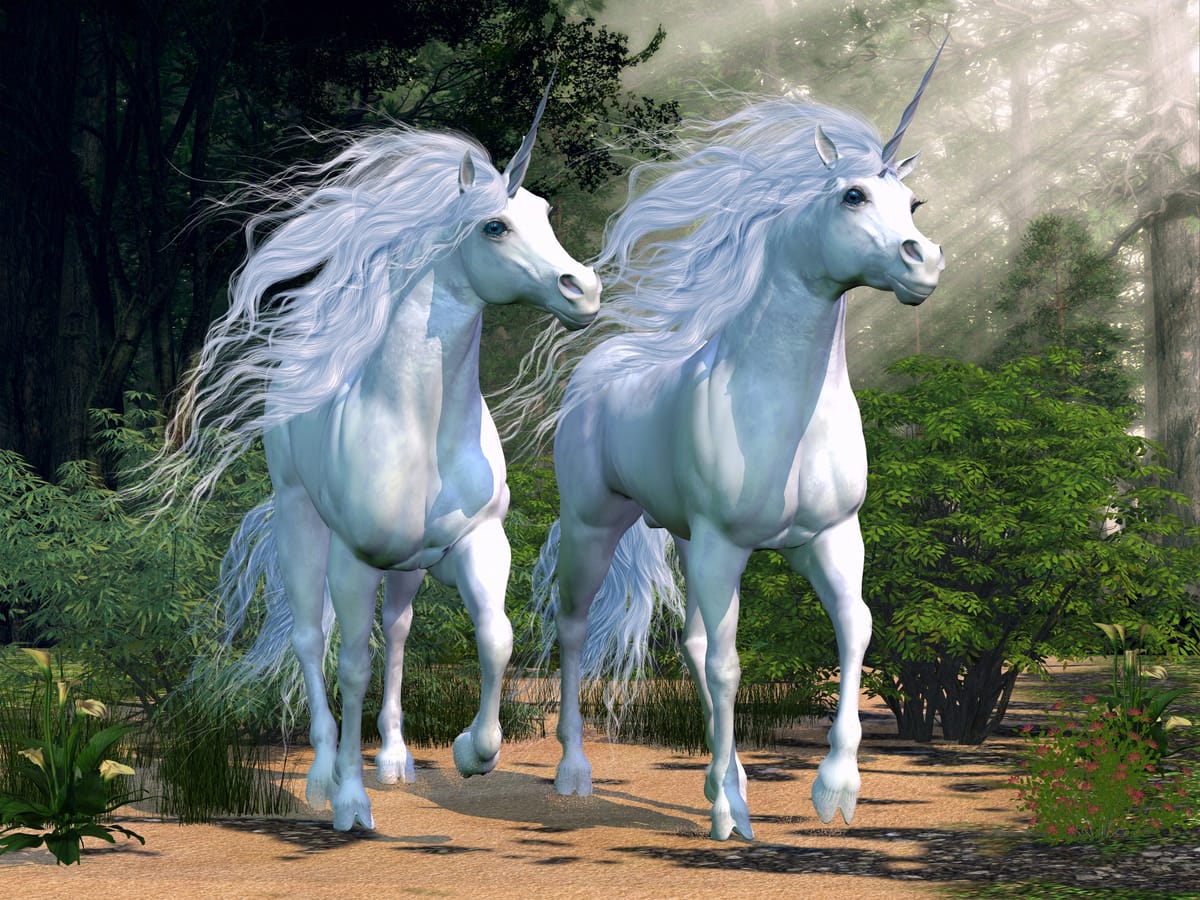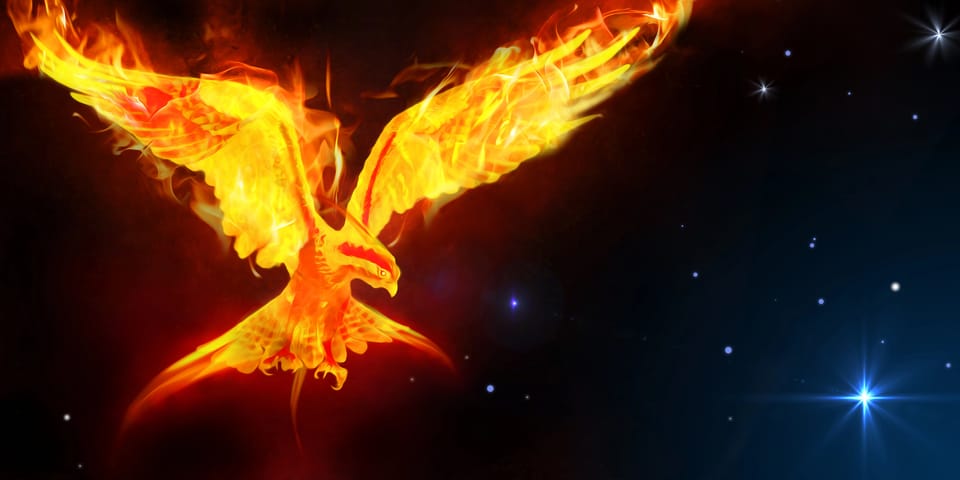My Biggest Life Realizations in 2024
It’s amazing how much you can learn in one year

So much happened in 2024.
Here’s what I discovered this year about life and humanity.
Maybe you can relate to some of these.
U.S. Election, Economic Crisis, Global Warming, and Other Mayhem
It’s been a stressful time. Even before Trump got re-elected.
Inflation is crazy. So many of my therapy clients, who are mostly in their 20s or early 30s, worry if they can ever gain financial independence from their families.
Especially when you live in an expensive city like Toronto. Minimum wage won’t cover rent and food, unfortunately.
If you want to live without family or government support in an expensive city, you might have to make high 5 figures to live comfortably. Yes, I said comfortably, not luxuriously. And you might still live in the basement.
So most of us either live with family, roommates, or still receive financial support from our parents or the government.
Because of this, there’s so much fear. Firstly, we feel the shame that we’re “adults” and still can’t survive on our own. And secondly, we’re terrified of becoming homeless if we don’t have our families to support us anymore.
Heck, some homeless people have full time jobs, and still can’t afford to be sheltered.
While our financial desperation rages on, I also see more and more disturbing signs of climate change. Wildfires, flash floods, enormous hurricanes, for instance.
It’s easy to lose hope, to see all this happening and have no power to stop it. How long will our planet last before humans can’t exist here anymore?
I hope I’m just being dramatic, but I don’t feel optimistic about it.
We're Like Goldfish in a Bowl
In light of the U.S. election, economic anxiety, and global warming, a lot of us feel overwhelmed and in despair.
We’re like goldfish in a bowl, helpless to change the sociopolitical events around us. All we can do is to keep swimming.
But later, I realized how sad and fatalistic that metaphor is. Plus, as bad as things are, we’re not unique in our degree of suffering.
Some people lived during wars. And some gay folks lived during the AIDS epidemic, where friends and lovers died before their eyes. These are undeniably bleak times too, but still, people had to find a way to live and even to enjoy life.
So I thought of a better analogy.
Instead of being a goldfish in a bowl, we are a dolphin in an ocean.
We can’t control the pollution that the factories pump into the sea. We can’t stop the hunters from trying to get us. Or sharks wanting to eat us.
However, the ocean is huge. There’s still a lot we can explore, and many cool places to swim to. It doesn’t mean that the threats don’t exist, but there’s room in our life for joy and fun too, even if it doesn't always feel like it.
Moreover, I talked to some friends and colleagues about this, and one great suggestion I got, is to engage in advocacy.
There are loads of ways you can contribute to social change movements. If you’re like me and have trouble with crowds and noise, you don't have to attend protests if you don't want to. There are many other ways you can help.
For instance: Educating people on social justice issues, donating to causes you believe in, signing petitions, providing emotional support to folks in need, volunteering for an animal shelter, fundraising for a charity, etc.
That way, even if your impact feels small, it still matters to those you touch. There will be a ripple effect as well, where the people you inspire, can also go on to inspire others.
Burnout and Energy Management
On a smaller but no less important issue, I’ve also learned so much about managing energy levels and avoiding burnout.
Rest is something I believe in, but don't always know how to put into practice.
If you have constant demands on your attention, neverending deadlines and duties to others, how the hell do you find time to “rest”?
But there are some ways you can do that. Your mileage may vary, but here are some things I like to do to restore myself:
Reading novels, writing fiction, playing Pokemon video games, chatting with friends, taking a walk, napping, indulging in fanfiction, etc.
These rest activities don't have to take a whole day. Even a 10 minute nap is way better than nothing. Even reading a few pages of a book can be restorative.
One crucial thing I learned, is that I need to rest before I hit my breaking point.
Regular, scheduled breaks are best. They are preventative measures, rather than measures you’re forced to take after you’ve already collapsed.
Now, I make myself rest on weekends and public holidays. On those days, I avoid doing work for other people. And I aim to do nothing deadline focused even for myself.
I do sometimes see a client or two on Saturdays, but since my sessions only take an hour, it doesn't feel so bad. I also take a break from posting on social media on weekends and public holidays for the same reason.
Strictly enforcing this rest schedule has helped my mental health so much. Now I find myself looking forward to weekends and public holidays.
I enjoy my work and helping others, but I deserve to be replenished, too.
Rest Like an Olympic Athlete
On a more micro level, I started enforcing another rule: I set an alarm that rings every 20 mins. I would then have to look in the distance to rest my eyes and do some muscle stretches. They could be exercises for my arms, neck, shoulders, hands, legs, eyes, etc.
Olympic athletes have to diligently take breaks and do stretches, so that they can keep up their top performance. So writers ought to do the same, with regular rests and stretches.
If we don’t take good care of our bodies, we’ll get sick, injured, or even develop chronic injuries—yes, I’m speaking from personal experience.
I’ve been hurt drastically enough by now that I take this advice seriously.
My 20 min rest alarm is a song I like, so that it doesn’t annoy me too much. I also let myself take till the end of the song to get up.
Often, I get resentful if I’m forced to stop right away. I’m more receptive if I get some time to transition out of my work first.
My routine isn’t perfect, but by creating these new rest habits, my energy levels are better these days. I can still feel tired, but it’s at a much more manageable level than before.
Sexual Orientation and Homoflexibility
Here’s a more personal topic that some of you may relate to.
I generally identify as gay. I’m mostly attracted to men and nonbinary folks on the masculine spectrum. Yet, on rare occasions, I can crush on a woman.
The experience is bewildering to me, not because there’s anything wrong with it, but because crushing on men and other masc folks is familiar and comfortable to me. Crushing on women and other femme folks feels foreign and confusing.
One issue is that I haven’t felt any sexual attraction towards women, not even the ones I had crushes on. I felt strong emotional attraction towards them, though.
What makes this more complicated, is that I’m on the aromantic and asexual spectra. I’m not that sexual in the first place.
Even my sexual attractions towards masc folks are rare and mild, so maybe sexual attraction doesn't matter that much for me.
Nevertheless, I had a serious crush on a female friend earlier this year. I didn't know what to do with these feelings.
Later, I wrote a horror romance between a trans guy and a cis girl, to try to make sense of these feelings.
It was cathartic. But the story became much more than my self-exploration, and I grew to love the characters and their relationship for their own sake.
The bottom line, is that we humans freak out over perfectly normal and harmless feelings. Why does it matter that I had a crush on a woman when I’m primarily attracted to guys?
Feelings are feelings, people are people. And I’d like to think that we’re attracted to the person, not their gender.
My current crush is a fellow transmasc nonbinary person. I admit that I breathed a sigh of relief, since this is familiar territory again.
Regardless, I’d like to just embrace my experiences. My favorite label for my sexual orientation is homoflexible. This means being mostly attracted to the same (or similar) gender, with some fluidity.
Friendship Angst
I enjoy making a lot of friends from many different groups.
As a consequence, I enjoy great friendship moments, but I also experience more platonic heartbreaks. I lost a couple of friends this past year.
The first one was because she had some internalized transphobia, and instead of working through it herself, she lashed out at me, and refused to back down.
I was actually less bothered by her internalized transphobia, since anyone can unlearn these prejudices as long as they’re willing. I was more bothered that she wouldn't stop haranguing me, even after I told her repeatedly that she was hurting me.
The strange thing was that she’s nonbinary herself (goes by she/her pronouns.) Perhaps she felt threatened because she still clung onto those transphobic beliefs, and resented me for having more progressive beliefs.
As for the other friend I lost, he always had anger issues. But he had never directed that wrath at me until that fateful day.
He never apologizes for his blowups, either. So I stopped speaking to him.
I won’t get into details, but he probably got resentful and jealous over something I got but he didn’t. Especially since he’s technically the more successful and established one.
But I won’t dwell on it. I just remember that it was as painful as a romantic breakup.
The lesson here is that you can try your best, but friendships are a two-way street.
Sometimes a friendship ends not because you didn’t try hard enough, but because of something that happened on the other person’s end.
It’s sad but there’s no need to blame yourself.
The Power of Social Accountability, Especially for ADHDers
I wonder why experts don’t recommend social accountability more often as a treatment for ADHD, since it works so powerfully. It works for non-ADHDers, too.
Of course, there are nuances when it comes to social accountability and support. Different people have different needs and preferences. What works for your friend, may not work for you, and vice versa.
For me, I have both more general accountability groups, as well as more specific ones. Some are specific down to the concrete task I want finished.
Here are some accountability groups or arrangements I’ve gotten for myself:
Flow Club video sessions
First of all, I signed up to a website called Flow Club. It’s a site created by ADHDers for other ADHDers. You can join a session, where you are on camera with up to eight other people. You share goals and hold each other accountable.
For instance, you can join a 2-hr flow. At the beginning, you all share your goals. At the end, you share what you’ve accomplished.
This is an encouraging atmosphere. There’s no judgment if you didn't manage to get something done. If anything, these sessions give me a more realistic sense of what I can achieve in a given time.
Flow Club has been extremely helpful to me. I feel much more in control of my life now.
The one downside is that since it’s general accountability, it’s easy for me to put off something I hate, by putting in a different task instead. In these cases, I have to use more specific and targeted accountability methods. Such as the therapy note one I mention below.
Therapy notes
It’s embarrassing, but for the longest time, I had trouble keeping up with my client notes as a psychotherapist. They weren't urgent, and there’s a low chance that I’d need to show them to anyone. So I would procrastinate like no tomorrow.
But then I asked my own therapist to be my accountability buddy! They’re technically a colleague as well, since we’re in the same field.
So at the start of each session, I would tell them how many clinical notes I have left over. So far that has always been zero, as the accountability has worked so well.
Physiotherapy
I have a chronic injury on my arm. My family doctor printed sheets of stretching exercises for me. But I never did them with any consistency. I only did them once in a blue moon.
Yet, months ago, I sought out a physiotherapist. And now I reliably do my stretches every day. It helps that the physiotherapist knows how to make them more bite-sized and easier to keep up with.
Fiction book coaching
I work with my book coach as well. Every other week, I give her the next chapter of my serial novel. Each chapter is a little under 2,000 words.
Yes, I’m keeping up with this pace! So I update the novel about twice a month. This is a fantastic speed considering that I have many other projects, too.
Regular blogging and social media posting
I joined a writing course cohort. The social accountability and friendly peer pressure there, help me keep up a regular pace of posting. Currently I post on social media (Substack notes, Twitter, and LinkedIn) on weekdays. And I publish blog articles biweekly.
Helping out a fellow fiction writer
Lately, I made a new friend who is a fellow Pokemon fanfiction writer. They have a long serial fiction (about 200 K words) that they wrote with their co-author.
But their co-author has left, and my friend struggled to find motivation to finish the last few chapters of the story. They were intimidated by how much editing would be involved, too.
I offered to be an accountability buddy for them. We had only known each other for a couple of weeks, so I was pleasantly surprised that they said yes! Every Wednesday, I would text them to ask how their progress is going on that story.
They made steady progress every week. On Christmas Eve, they finally published their next chapter! Their chapter was 24 K words long.
They had the draft mostly written up before, but they had to add some extra scenes, and do some heavy editing, which they had dreaded. But they worked hard and got it done!
My friend said that they had been stuck on this story for the past 3 years, lacking the motivation to move forward. But over this past month or so, they were finally able to update the story! Accountability truly is powerful.
Those are my biggest life realizations in 2024.
How about you? What are some noteworthy experiences and discoveries you had this year?



